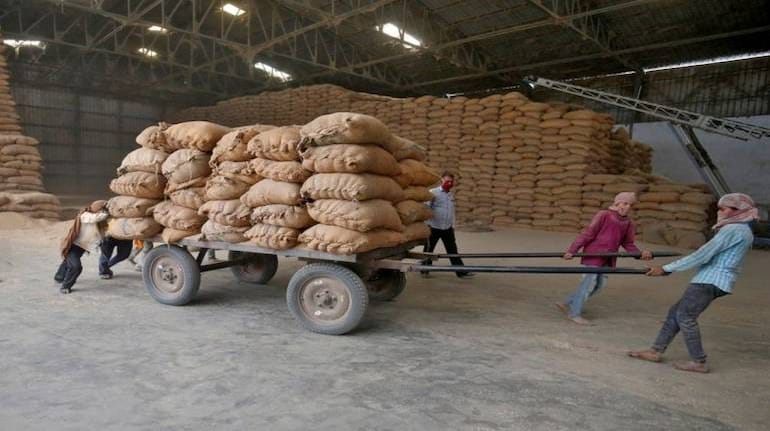



The Food Corporation of India (FCI) ended up buying 20.3 million tonnes of paddy from Punjab during the 2020 kharif, or summer-sown season, which is 11 percent more than the state produced, reported Hindustan Times. The state’s paddy output stood at nearly 18.1 million tonnes.
The government procures the farm produce at assured prices in an 'open ended' process from the procurement centres, which also makes the system vulnerable to scams.
As per the process, agricultural produce market committees’ procurement yards transfer the stocks to rice mills where they are milled over the next five months. After the paddy are milled, the rice is handed over to FCI, which then stores it in its own or hired silos.
Punjab CM opposes DBT for farmers, writes to PM Modi seeking deferment of scheme by 1 year
Looking at the reason on FCI buying more paddy from Punjab than the state actually produced last year, one can observe that often traders buy foodgrains from states like Bihar at lower than government-assured prices and transport the produce to Punjab and Haryana. Since these states have robust procurement system, the profit is also higher.
With incidents such as these and practices keep on going, the FCI is mulling to introduce gadgets at its procurement centres that will show the 'age of rice'. The new practice will prevent middlemen and traders to recirculate and resell old rice to FCI.
"Rice-age testing is already on in Andhra Pradesh. Its successful implementation there means that the FCI will roll it out across the country, mainly in procurement-heavy states," Hindustan Times quoted food secretary Sudhangshu Pandey as saying.
The gadgets are already in use in Andhra Pradesh which detect rice age by involving pouring certain chemicals on a sample of rice. The freshly milled rice turns to a certain colour indicating it has been freshly harvested.
In another major development, FCI is mulling proposal to change the quality norms on rice and wheat which it buys, that may limit the total quantity of foodgrains procured by the agency.
The proposal recommends that wheat with a moisture content of 12 percent or less will be fit for procurement, which was 14 percent earlier. While for rice, the permissible limit of 'foreign matter' has been decreased from 2 percent to 1 percent for procurement. This new strategy is being implemented meet international standards of foodgrains for easy export.
Meanwhile, experts say this process may adversely impact costs of farmers who need to ensure proper post-harvest processing to meet higher standards of procurement.
Discover the latest Business News, Sensex, and Nifty updates. Obtain Personal Finance insights, tax queries, and expert opinions on Moneycontrol or download the Moneycontrol App to stay updated!
Find the best of Al News in one place, specially curated for you every weekend.
Stay on top of the latest tech trends and biggest startup news.